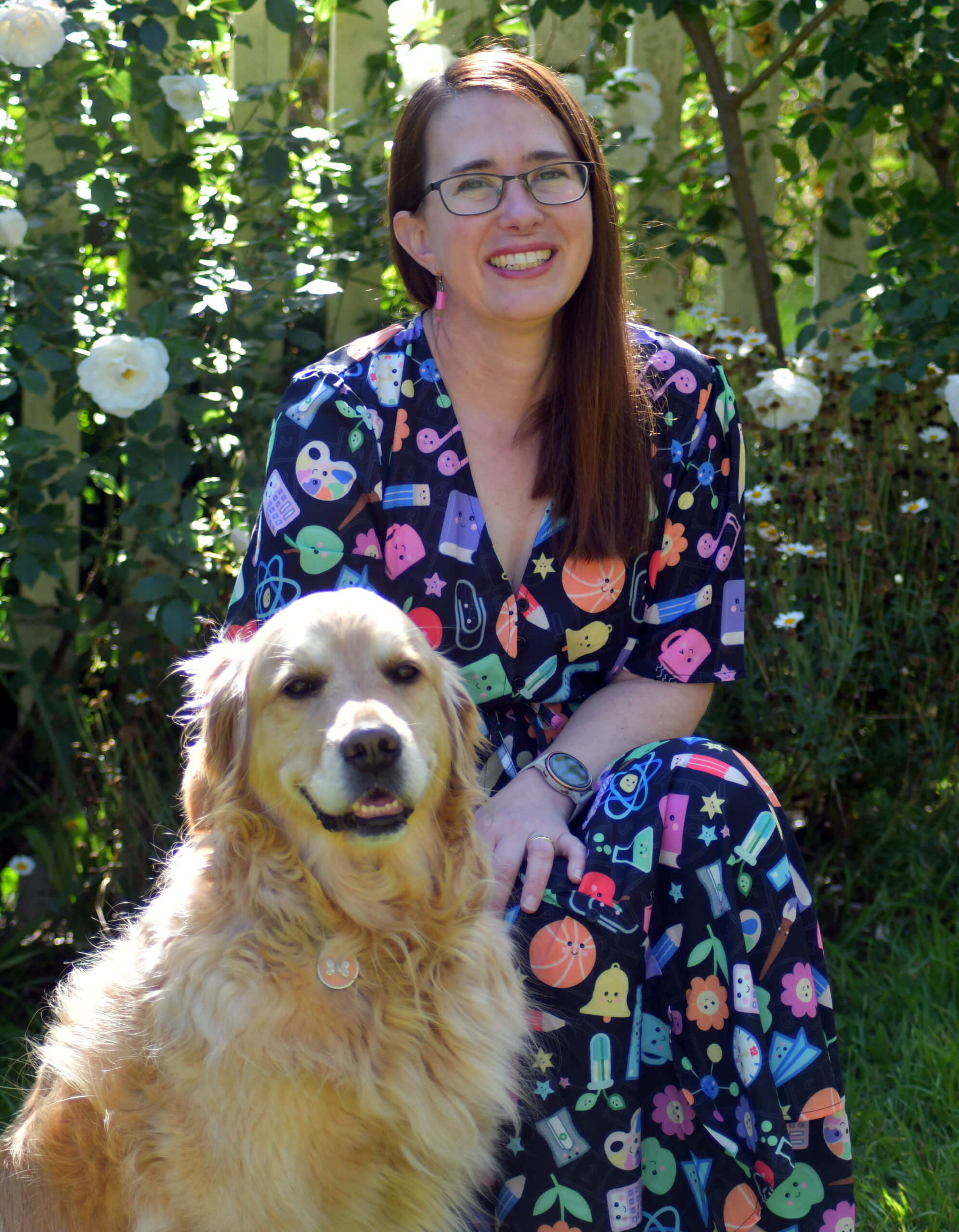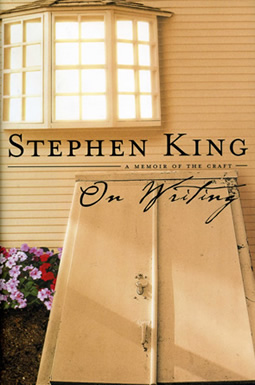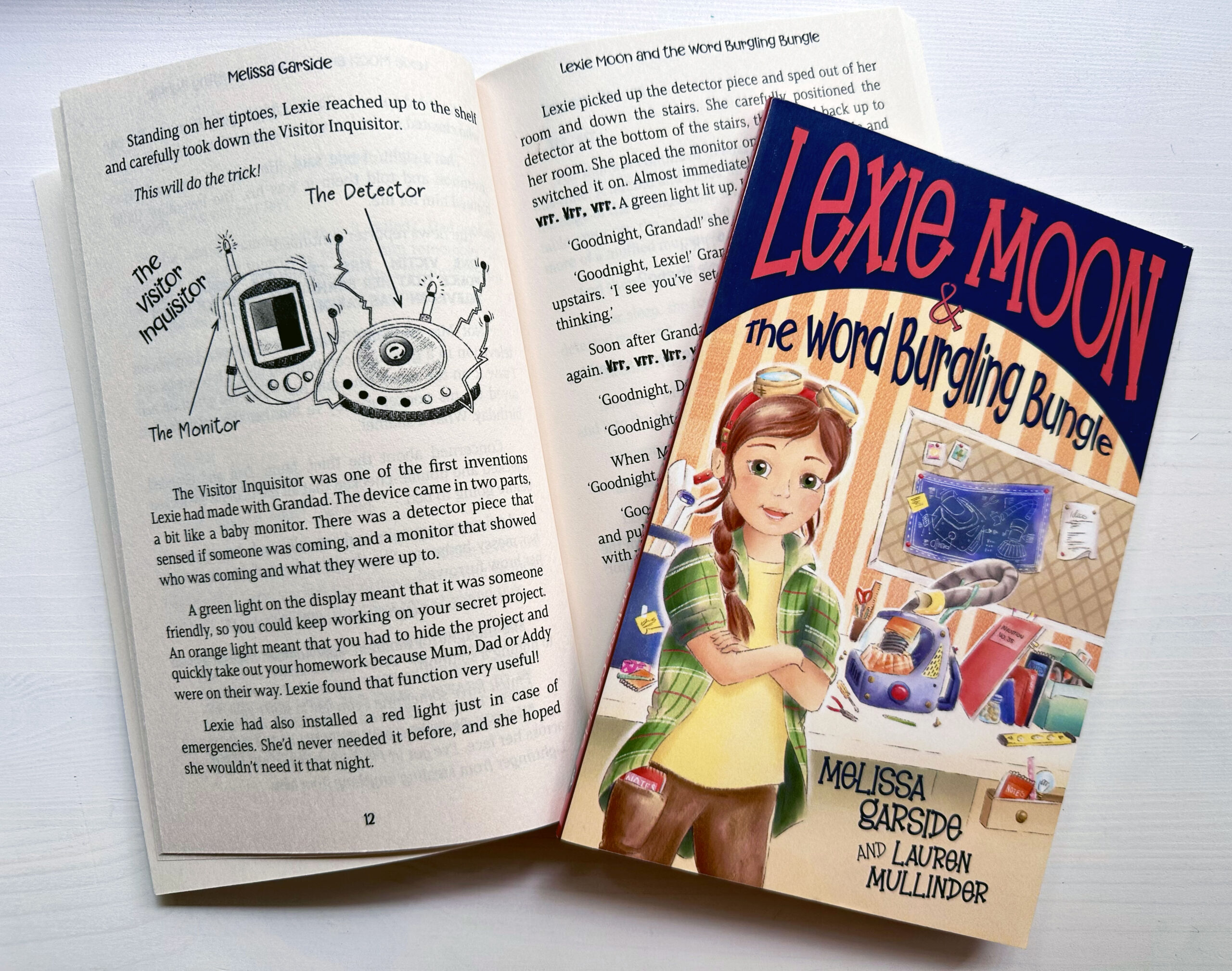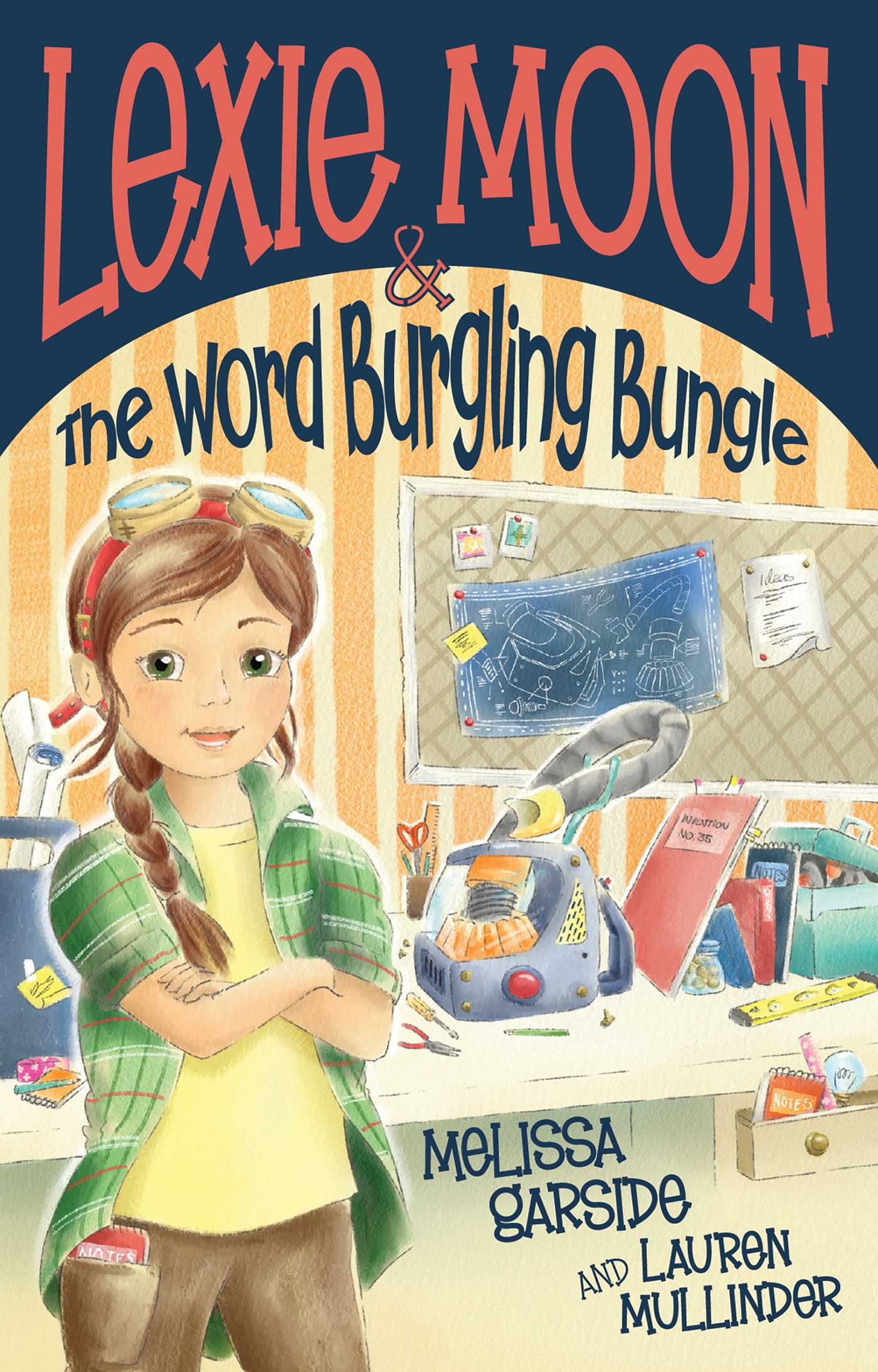This article first appeared in Paperbark Words. Introduction by Joy Lawn.
Thank you for speaking to Joy in Books at PaperbarkWords blog about your debut junior novel Lexie Moon & The Word Burgling Bungle, Melissa.
In my review of the book for Books + Publishing I concluded, “If this book doesn’t encourage young readers to invent something themselves, it will at least inspire them to read.”
Because I’ve already interviewed Melissa about the book for Books + Publishing, she now shares some insights into “the need we often have for positive role models and trailblazers to show us that we can do the things that may be outside expectations, and that sometimes we need someone to give us permission to follow our dreams.”

The Right to Write by Melissa Garside
January 2025
Firstly, I’d like to send a huge ‘Thank you’ to Joy Lawn for her wonderful review of Lexie Moon & The Word Burgling Bungle (Books + Publishing review and interview) and for this opportunity to share some of my thoughts on becoming a writer.
Lexie Moon & The Word Burgling Bungle is my first published work, but it’s by no means the first thing I’ve ever written. I’ve been writing in one form or another my whole life, always with a dream of one day getting published.
So why has it taken me so long to get here?
I think it basically came down to me not believing that someone like me could become a published author. I mean, how was that even possible? As a child, I didn’t know any published authors and I doubt that I even thought they were real people—they just came into the world fully formed, a bit like princesses, astronauts and teachers.
I eventually started to cotton on to the idea that writers might actually be real people, but they weren’t people like me. Instead, they were people who had had the title of ‘writer’ bestowed on them by birth right or higher authority. Everything seemed to be telling me I had no right to that title. Feedback from my teachers—and occasionally friends—was discouraging. My writing was certainly not good enough to be seen by others.
Through the years, I held onto the dream of writing, and along the way a few people and events gently nudged me in the right direction: Jackie French’s work on sustainable living inspired me long before Diary of a Wombat appeared on bookshelves; my own grandfather working on his decade-long, never-published ‘book project’; going back to uni helped me hone my skills, knowledge and even enjoyment of academic writing, showing me that perhaps I wasn’t too bad at that sort of thing after all.
Yet, still I couldn’t find the courage to call myself a writer.
The first turning point happened—surprisingly—as a primary school teacher during a professional development session when we read an article by Jo Boaler on mathematical mindsets. Among other things, the article debunked the common notion that there are two types of people—maths people and everyone else—and that if you weren’t already the former, you may as well forget about it. It was a bit of an epiphany for me and I started to wonder that if anyone could become a maths person, then perhaps anyone could become an ‘art’ person or, heaven forbid, a ‘writing’ person!
Another huge and important turning point for me happened when I picked up a book by Stephen King, On Writing: A memoir of the craft. It changed my whole world and I’m sure I’m not alone. In that book, Stephen King gave mea ‘permission slip’ to write: ‘you can, you should, and if you’re brave enough to start, you will.’ I am very grateful for those words.
Yet, despite all this encouragement, I still harboured doubts. Surely, I didn’t have the right to write. After all, I didn’t want to be a poser. Isn’t writing fiction just an indulgence, an ego-trip? Shouldn’t I leave it to other people who have the gift?

Nevertheless, those small nudges had an effect. I began to secretly take a notebook with me when my son had swimming or violin lessons, writing by stealth and never telling a soul. Finally, after years of leading a double-life, I found the courage to tell my husband (who already suspected) what I’d been up to—and to tell him about the online writing course I’d signed up to. He and our son have been incredibly supportive and encouraging ever since. They are my cheer squad.
In 2020, I completed an early draft of Lexie Moon & The Word Burgling Bungle—at that time it was a picture book called Lex, the Word Thief with a male protagonist. But something made me pause to reflect on my own biases and character choices. Why had I chosen a boy as my protagonist? I realised my choice was partly because—rightly or wrongly—I’d heard that boys generally only read books about males, but it was mainly because I had automatically pictured my inventor as male.
But didn’t I want my readers to think that they could be ‘inventing’ people, just like I had grown to learn that I could be a ‘writing’ person? I started thinking about the quote ‘You can’t be what you can’t see’. If inventors are stereotypically male and I wrote about a male inventor, wasn’t I just reinforcing that stereotype? Just as I had found a cheer squad for my writing dreams, wasn’t this an opportunity for me to cheer on the dreams of all future inventors?

Along my path to publication, I’ve learnt that it is not a solo event. It’s a team effort. My team has included my family, my amazing critique buddies, Rowena Beresford my wonderful editor at Riveted Press, Lauren Mullinder the fabulous illustrator, all of the organisers of writing courses and festivals, and the greater kids’ lit community. Stephen King gave me permission to write, but the writing community gave me permission to call myself a ‘writer’.
I started writing this article in 2018 but stopped because I thought that perhaps I was the only one who felt the way I did. There are probably many out there who are able to just get on with it, but in case you are someone who is wondering if you have the right to write, then please know you are not alone and that you do have the right to call yourself a ‘writer’!
Now I’m on the next stage of my journey. I’ve learnt that the kids’ lit community is welcoming and supportive, I’m getting better at accepting—and declining—constructive feedback and I’m developing my craft. I’m also wondering why I ever waited so long.
Paperback Words can be found here.
Lauren Mullinder can be found here.
Riveted Press can be found here.

